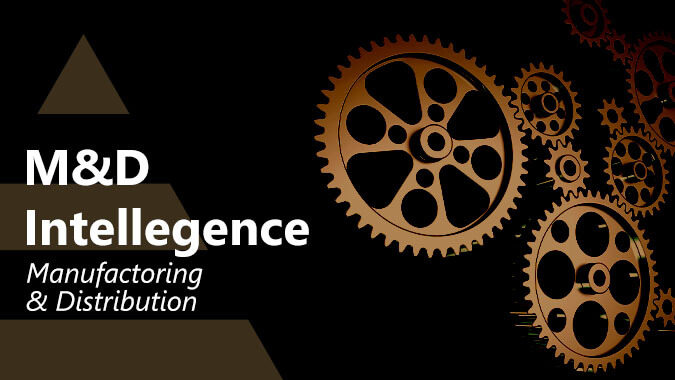
Supply Chain, Valuations, and Digitization: A Q1 Outlook for Manufacturing & Distribution
- Published
- Feb 1, 2024
- By
- Travis Epp
- Share
The manufacturing & distribution industry continues to face many challenges, including high interest rates, recessionary concerns, and labor shortages.
In this article, we look at:
- The continuation of supply chain challenges.
- A paradigm shift towards a more entrepreneurial market.
- The impacts from a shift in consumer spending.
- Why valuations are more important than ever.
- How digitization is helping organizations scale and create more visibility in the supply chain.
Supply Chain Challenges Continue
Supply chain disruptions first triggered by pandemic persist, impacting logistics and overall costs. To address these challenges, manufacturing and distribution companies need to focus on transportation, planners, and warehouse managers.
A heightened regulatory environment in the U.S. is increasing costs in the supply chain. In this current landscape, it is imperative to put an increased emphasis on inventory costs, transportation and logistics and relationships with foreign suppliers. Those factors help move M&D corporations into niche markets to foster growth and facilitate supply chain conversions.
Mid-Market Taking Over the Logistics Industry
Amidst these challenges, the logistics industry is undergoing significant shifts, with the U.S. and Canada transitioning into a more entrepreneurial, mid-market business environment. Rapid digitization, fueled by the remote work environment and enhanced visibility and responsiveness in the supply chain, has driven this change.
As middle markets embrace an entrepreneurial spirit, the need for a more strategic focus becomes important. Companies must overcome scalability challenges by planning and concentrating on growth segments and key growth factors.
Changes, Valuations, and Investor Opportunity in the Freight Market
Consumer spending, a key factor influencing the logistics marketplace, has shifted from goods to services, therefore, impacting freight volumes and third-party logistic (“3 PL”) providers. This has resulted in top line growth for 3PL provides
The current freight market, characterized by margin squeezes and high inflation, is seeing sluggish consumer spending and challenges raising equity, even though infrastructure funds are booming. Valuations, influenced by the financing environment and capital structure, become crucial in this type of market.
The highly volatile and deeply fragmented market presents a unique opportunity for investors or buyers to scale and stack synergistic assets. For example, more than 900,000 members are in the American Trucking Association, but 88% of trucking companies only own five or fewer trucks. Yet, there are 15,000 intermediaries, five giant companies, 25 large companies, and 500 mid-sized companies, highlighting defragmentation within the motor carrier industry.
Digitization for Manufacturing & Distribution Organizations
As digitization and e-commerce continue to rise, organizations need to make sure that their IT departments can manage their technology and training needs to succeed. Platforms like NetSuite, a comprehensive database, can help run an entire business, from accounting services to inventory management. These platforms offer real-time synchronization, allowing companies to monitor all movements, even triggering accounting entries when assets go in or out of inventory.
Incorporating technologies help organizations proactively manage and assess their needs accurately, fostering resilience and adaptability in the face of ongoing challenges.
Building Resiliency in Manufacturing & Distribution
As the manufacturing and distribution industry continues to deal with the challenges, seeking support to navigate supply chain disruptions, regulatory complexities, and ongoing shifts in the logistics industry is important. Consider partnering with advisors to develop a strategic response for sustained growth, leverage insights, and implement technological advancements.
What's on Your Mind?
Start a conversation with Travis
Receive the latest business insights, analysis, and perspectives from EisnerAmper professionals.












